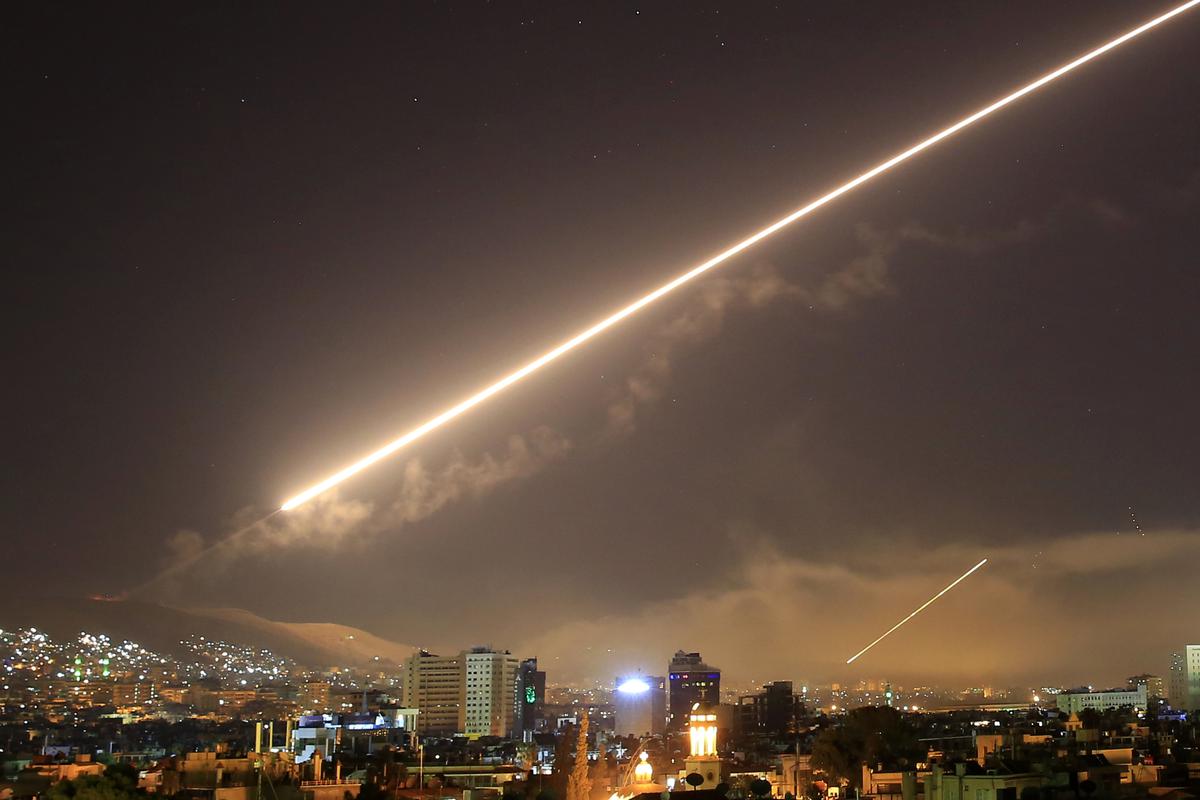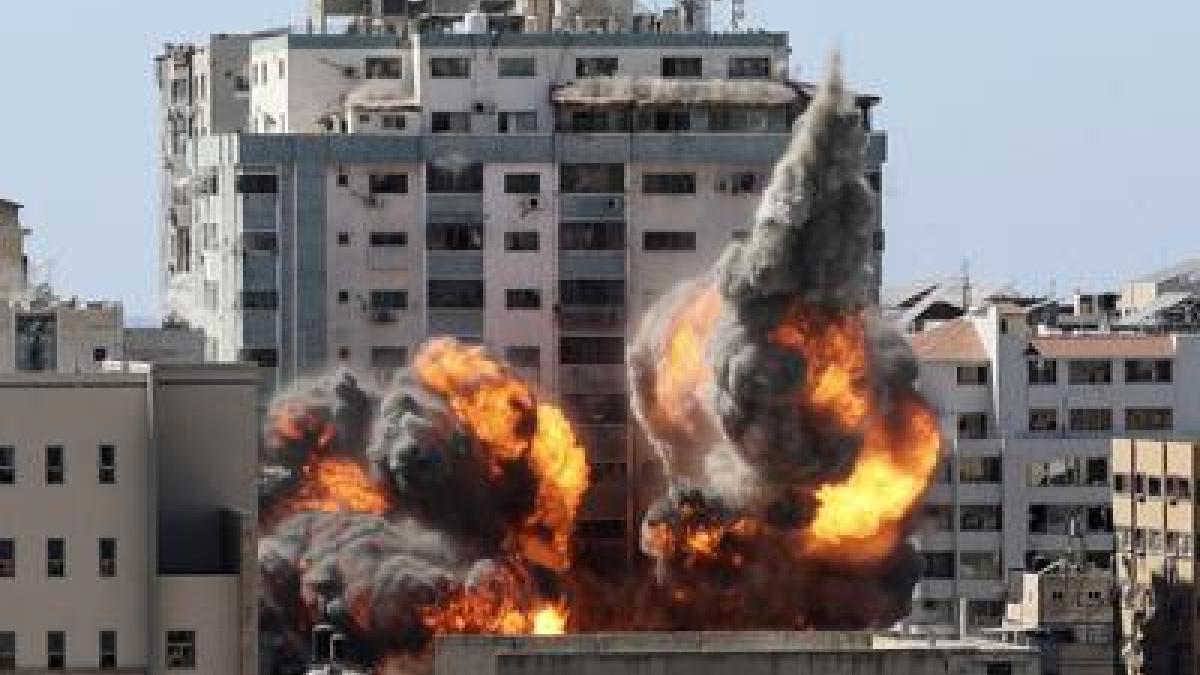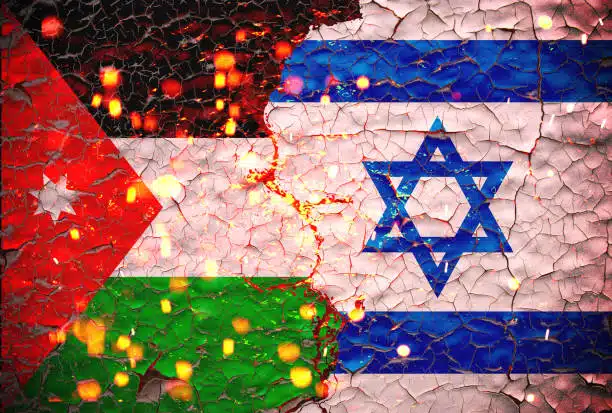Syria has claimed that three troops were injured in Israeli airstrikes on Sunday morning, which hit targets in the country’s central and western regions.
Tel Aviv has launched hundreds of attacks against its northern neighbour Syria since the civil war broke out in 2011. Their primary targets have been government troops, allied Iran-backed forces, and Hezbollah members from Lebanon.

According to media reports, which cited an unnamed military source, an Israeli airstrike occurred “at around 7:15 am,” with missiles being fired from the direction of north Lebanon toward targets in the Tartus and Hama countryside.
The report stated that three soldiers were injured and some equipment was lost as a result of the strike. Nevertheless, some of the missiles were intercepted by Syrian air defences.
While there is no specification of which buildings were hit, the Syrian Observatory for Human Rights reported that pro-Iranian soldiers and a “scientific research institution” were present in the locations of the fire.
The Observatory also reports that three people were killed on Tuesday when Israeli aeroplanes attacked Aleppo Airport in Syria’s second city.
The British-based Observatory said on February 19 that 15 persons were killed in an Israeli airstrike on a Damascus neighbourhood that houses state security services.

The Israeli Defense Force has stated that they “don’t comment on reports in the foreign media.”
While the Israeli military rarely discusses specific operations, it has repeatedly pledged to keep up its air campaign in Syria to prevent its sworn enemy, Iran, from cementing its presence there.
Saudi Arabia – Iran Reconciliation: An Angry Israel
On Saturday, the news of the reconciliation between Saudi Arabia and Iran broke, sending shockwaves through the Middle East and dealing a symbolic blow to Israeli Prime Minister Benjamin Netanyahu, who has made countering the threat posed by Tehran a top priority of his public diplomacy and a personal vendetta.
The breakthrough, which was the result of over a year of negotiations in Baghdad and more recent talks in Beijing, became mired in Israeli politics, reflecting the country’s differences at a time of national instability.

Broadly speaking, the agreement constitutes one of the most dramatic developments in Middle Eastern diplomacy in recent years, since it permits Iran and Saudi Arabia two months to reopen their respective embassies and re-establish connections after a rift of seven years.
The announcement prompted guarded optimism in nations like Yemen and Syria, which have been stuck between the Sunni kingdom and the Shiite powerhouse for a long time.
This move generated a lot of dissatisfaction and finger-pointing in Israel as a result.
To this day, Israel’s normalisation agreements with four Arab states in 2020, including Bahrain and the United Arab Emirates, stand as one of Netanyahu’s greatest foreign policy victories. They were part of an overall effort to marginalise and resist Iran in the area.
He has presented himself as the sole Israeli politician who can stop Iran’s burgeoning nuclear program and its regional proxies like Hezbollah and Hamas. Some fear Iranian drone strikes against Israeli-linked ships transporting cargo in the Persian Gulf are part of a larger regional shadow war being waged between Israel and Iran.
Netanyahu’s top priority would be achieved if he could get a normalisation agreement with Saudi Arabia, the most powerful and wealthiest Arab state, which would dramatically alter the region and elevate Israel’s stature. The monarchy has stated that it will not recognize Israel until the decades-long Israeli-Palestinian conflict is resolved, even though relations between the two countries have improved through back channels.
Since Netanyahu’s return to office at the end of last year, he and his supporters have been dropping hints about a possible agreement with the monarchy.
According to experts, however, the agreement between Saudi Arabia and Iran, announced on Friday, puts a damper on such plans. Israel is leading the fight for diplomatic isolation of Iran and threats of a unilateral military assault against Iran’s nuclear facilities, but it is essentially on its own because Saudi Arabia has decided to negotiate with its regional foe. The United Arab Emirates and Iran have revived their diplomatic ties.

War-scarred Like Iran, Syria sees this as a step toward diffusing tense situations that have escalated the strife in their country. Saudi Arabia has backed opposition forces in Syria, while Iran has supported President Bashar Assad’s administration.
The Syrian Foreign Ministry hailed the development as “an important move that would lead to enhancing security and stability in the area.”
Politicians in Israel, which is deeply divided and has been rocked by mass protests over Netanyahu’s far-right government’s plans to overhaul the judiciary, have used the rapprochement between the kingdom and Israel’s archenemy as an opportunity to criticise Netanyahu, saying that he is putting his agenda ahead of Israel’s international relations.
The “power struggles and head-butting” in Tel Aviv, according to Yuli Edelstein of Netanyahu’s Likud party, are keeping the country’s leaders preoccupied from more immediate dangers.
On an official visit to Italy, Netanyahu declined to respond and has not made any public statement. On the other hand, a senior official in the delegation, speaking anonymously to the media, attempted to shift the blame to the administration that had been in power for the preceding year and a half before Netanyahu’s return to power.
Experts were sceptical that a detente would hurt Israel, despite the damage to Netanyahu’s reputation. According to Guzansky, even if Saudi Arabia and Iran both have embassies in the other’s capital, they will continue to be regional rivals. Saudi Arabia, like the United Arab Emirates, may strengthen ties with Tel Aviv while keeping Iran as a transactional partner.












